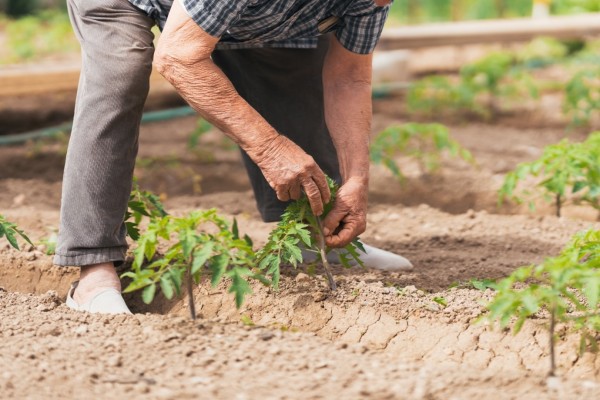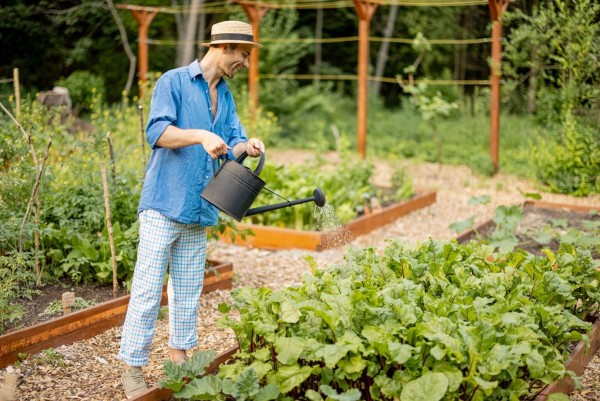As we become more conscious of the impact our actions have on the environment, sustainable gardening practices are becoming increasingly popular. Sustainable gardening is a method of cultivating plants that take into account not only their health and growth but also the long-term impact on the ecosystem. From reducing waste to conserving water, there are numerous benefits to adopting sustainable methods in your garden. Let us explore why sustainable gardening is important and how you can create a beautiful and eco-friendly garden right in your backyard!
What is sustainable gardening?

Sustainable gardening is a method of growing plants that focuses on minimizing the negative impact on the environment. This approach is all about creating a healthy ecosystem, using resources responsibly, and reducing waste. It involves considering every aspect of gardening practices from seed to harvest. One key element of sustainable gardening is planting native species. These are plants that naturally occur in your local area and have adapted to the specific soil, climate, and pests found in your region. Using native species can reduce water usage as they require less maintenance than non-native plants. Another important principle of sustainable gardening is composting. Composting involves taking organic waste such as food scraps or fallen leaves and allowing them to decompose into nutrient-rich soil for your garden beds. This process reduces landfill waste while providing free fertilizer for your garden. Sustainable gardening also means avoiding harmful chemicals like pesticides and herbicides that can harm beneficial insects and pollinators. Instead, natural pest control methods like companion planting or using insect-repelling herbs can be used. Sustainable gardening promotes harmony with nature while producing beautiful gardens that thrive without harming the planet around us!
Why is sustainable gardening important?

Sustainable gardening, on the other hand, focuses on using natural techniques that promote healthy soil, conserve water and support biodiversity. By utilizing organic materials such as compost and implementing methods like crop rotation, companion planting and natural pest management strategies, sustainable gardeners can reduce their reliance on harmful chemicals while still producing a bountiful harvest. In addition to benefiting the environment, sustainable gardening also offers numerous benefits for your own health. Eating fresh produce from your own garden can provide essential nutrients while increasing physical activity levels through activities like weeding and harvesting. By choosing to practice sustainable gardening techniques you are making an active effort towards protecting our planet's natural resources for future generations while also reaping immediate rewards for yourself.
How to create a sustainable garden
First, choose native plant species that are adapted to your region's climate and soil conditions. These plants will require less maintenance and water than non-native species, which can ultimately help reduce the amount of resources you use in maintaining your garden. Next, consider using organic fertilizers instead of synthetic ones. Organic fertilizers provide nutrients for your plants without introducing harmful chemicals into the environment. Additionally, composting is also an excellent way to recycle natural waste materials back into the soil as a form of nutrient-rich fertilizer. Another important aspect to consider when creating a sustainable garden is water conservation. Installing rain barrels or other forms of water collection systems can help you harvest rainwater for future use in watering your garden. Incorporating wildlife-friendly features into your garden such as bird feeders or nesting boxes can be beneficial not only for supporting local biodiversity but also for promoting pollination among plants.
Tips for sustainable gardening
1. Choose Native Plants: Native plants are adapted to your region's climate, soil and pests. They need less water and fertilizer than non-native plants which makes them a great choice for sustainable gardening. 2. Use Eco-Friendly Products: Avoid using chemical fertilizers, pesticides or weed killers in your garden as they can harm the environment and wildlife. Instead, opt for eco-friendly products that are safer for you and the planet. 3. Composting: Start composting by creating a small bin of food scraps like vegetable peels, fruit cores etc., along with yard waste such as leaves or grass clippings which will help enrich your soil naturally. 4. Water Conservation: You can conserve water by watering deeply but infrequently especially during dry spells when there is no rainfall. 5. Mulching: Covering the soil around plants with mulch helps retain moisture levels resulting in less watering needed while also suppressing weeds' growth without chemicals. 6. Companion Planting: It’s important to choose companion planting schemes that complement each other allowing space-saving techniques like intercropping; where two compatible crop types grow together closely enhancing pest resistance while reducing susceptibility to disease attacks 7. Pest Control Methods: Implement Integrated Pest Management (IPM) strategies such as handpicking insects off of plants, attracting beneficial insects into the garden through planting nectar-rich flowers and providing habitats for these creatures in order to keep pest populations under control without resorting to harmful chemicals. By following these tips you’ll be able to create an environmentally sustainable garden that will benefit not only yourself but also future generations!
Media Contact
Company Name: Reddy J
Contact Person: Media Relations
Email: Send Email
Phone: 91-40-35815531
City: Manikonda
State: Hyderabad
Country: India
Website: https://www.asiafarming.com